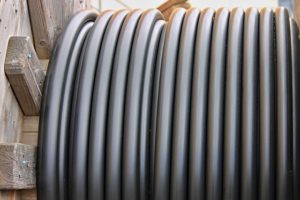There are many considerations one should make when purchasing electrical wiring materials. What is the project you will be wiring? How much wire do you need? Do you want to use PVC or metal conduit for your wires, and what type of connectors will be used on each end?
These are all things that need to be considered before buying your electrical wiring supplies. If this sounds like something you would like to read about, keep reading.
The Materials Should Be Compliant with the National Electrical Code
 The first consideration you should make when purchasing electrical wiring materials is to ensure compliance with the National Electrical Code. The NEC outlines all of the requirements for safe installation and electricity use, so it is vitally important to follow its guidelines without exception if you want a properly functioning system. If your local area does not have a copy, search online or ask around at a local hardware store for someone familiar with the code. Additionally, the solid copper wire does not have as much flexibility as other types of wire, so it is not as easy to work with; you can find copper lighting fixtures for sale online.
The first consideration you should make when purchasing electrical wiring materials is to ensure compliance with the National Electrical Code. The NEC outlines all of the requirements for safe installation and electricity use, so it is vitally important to follow its guidelines without exception if you want a properly functioning system. If your local area does not have a copy, search online or ask around at a local hardware store for someone familiar with the code. Additionally, the solid copper wire does not have as much flexibility as other types of wire, so it is not as easy to work with; you can find copper lighting fixtures for sale online.
Not only should you make sure that your electrical wiring materials are compliant, but they must also be of high quality and designed to handle their intended purpose without any issues. There is nothing more frustrating than going through all of the time and trouble it takes to install new electrical wiring just to have it break down prematurely because of poor quality materials.
When Buying Wire, Consider the Type of Wire and Its Insulation
Various types of wire are used for different applications. When buying wire, you need to consider the type of wire and its insulation. For example, solid copper wire is often used for wiring in homes because it has a high current carrying capacity. However, it is also more expensive than other types of wire.
When choosing insulation, you need to consider the environment in which the wire will be used. For example, if the wire will be used in an outdoor application, you will need to select a type of insulation resistant to weathering. One common type of insulation for outdoor wiring is PVC (polyvinyl chloride). This type of insulation is resistant to moisture and ultraviolet light damage, making it suitable for outdoor use. However, because of its high chlorine content, PVC wire insulation should not be used where food is prepared or stored as there can be toxic fumes released into the air when it burns.
Consider What Size Wire You Need
You should also consider the wire size you need for your project. The most common sized wires are 14 and 12, but if you’re doing something particularly heavy-duty like wiring a house or building an outlet in your garage, you might want to go up to No. 0000 (or “four ought”). If you have no idea what size wire you need, your local hardware store will be more than happy to help you out.
The most important thing to remember when buying electrical wiring materials is to buy the right stuff for the job. With a bit of knowledge and some common sense, though, you should have no problem whatsoever. Happy wiring!

